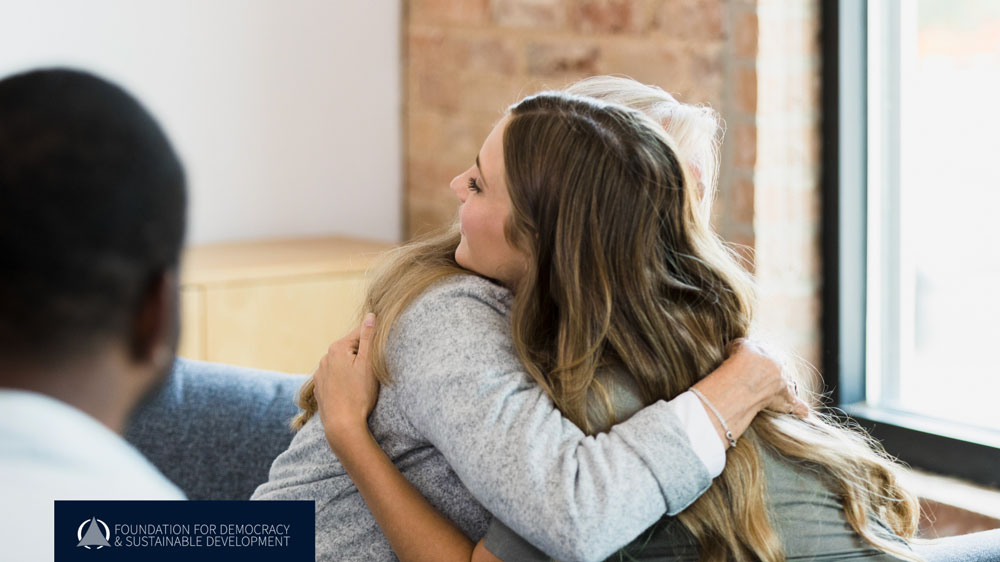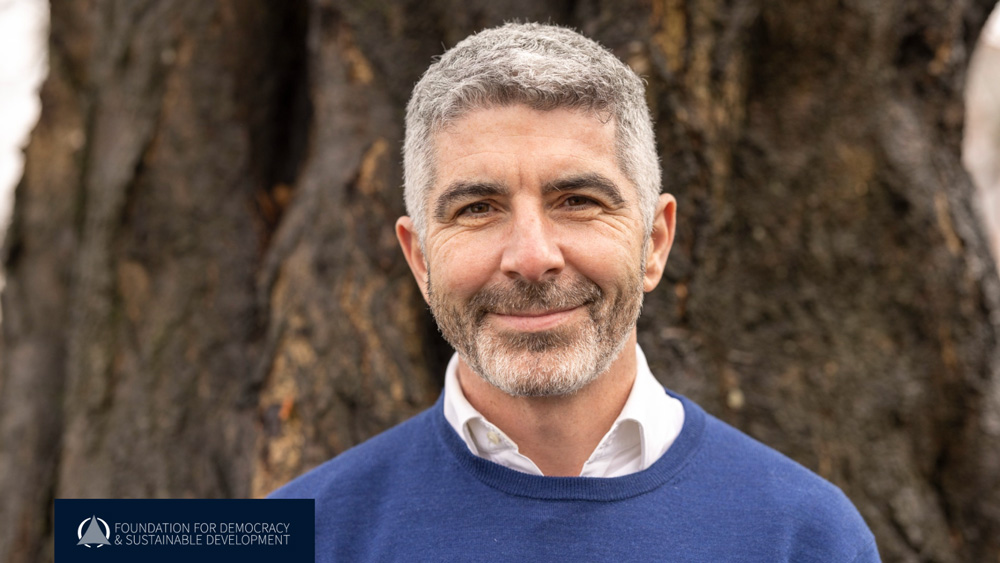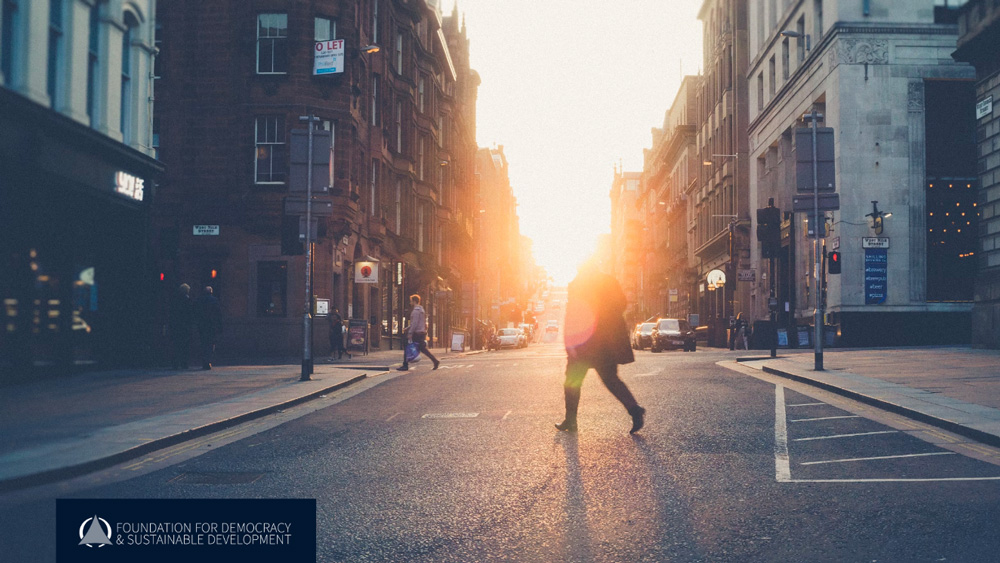
© istock/SDI Productions
As we move ever closer to 2030 – the arbitrary endpoint for the collectively agreed UN Sustainable Development Goals – and in a year when the commitments of the climate negotiations at the 2021 UN Climate Change Conference, COP26 will need to be further strengthened, we do not have the luxury to stay in our comfort zones, or just comment from the side-lines. Agreeing and negotiating how we go forward, in a fair way, will be tough. It requires us to roll up our sleeves, banish any presumption of easy ‘win-wins’, and engage with people with whom we may not easily get on.
It is increasingly difficult for political parties to put forward clear manifestos to address the complex challenges of our times. At the same time, representative democracies have become ever more conflictual, polarising people’s views and making the resolution of the challenges we face ever harder.
This is why FDSD has promoted the more extensive application of other kinds of democratic decision-making which are more participative, often based on reaching a considered position through the deliberation of diverse people. This kind of approach is, for example, reflected in the increasing interest in the possibilities of citizens’ assemblies. While such deliberative processes have tended to be used at local level, the application of national-level climate assemblies indicates their potential to grapple with highly complex issues characterised by political deadlock.
However, these kinds of approaches have limits. In a blog for FDSD, Graham Smith argues how climate assemblies, for example, need to better integrate with the political system to have real impact. Other challenges arise from the relatively small group of people who are engaged. Whilst ensuring diversity can increase the legitimacy of outcomes, the people involved go on a journey (both emotional and intellectual) to reach a collective decision, particularly if they change their mind. But being part of a process that enables people to listen to others’ views and test evidence, is not available to everyone else. Often that personal and group ‘journey’ is just as important as the outcome, particularly when an issue is highly emotive and polarised. Indeed, it may be the only way to enable widespread acceptance, and constructive engagement.
I’ve recently been in meetings between local residents, or between residents and the council, where the decisions made directly affect the lives of those attending, whether on housing, transport, or security. Some events have been full of shouting and emotion, never reaching agreement because the people involved start the sessions with mutual suspicion, not ‘hearing’ each other, as a result sometimes of years of tense relationships and disappointment. Not every meeting has a Jackie Weaver! Often these kinds of events are run by people without good training in either managing disagreements, or in creatively working with different views and perspectives to achieve a shared way forward and more positive relationships.
An example, likely to become more prevalent, is considering how an estate or local area switches to more climate-friendly heating provision. Those decisions will likely affect people very differently, depending on, for example, their income, their beliefs about what can and should be done, or the current state of their housing stock or heating provision. This kind of decision is not appropriate for approaches such as citizens’ assemblies since its aim is not to create general principles or ideas for action, but to deal with the complex reality of how to implement ways forward. As such, it needs to involve all those directly involved, not just to fully understand a particular situation and place, but crucially all the ways in which this will affect people, and how best to create an agreed and fair way forward.
Every one of these decisions affects not only how we meet future societal goals, such as climate targets, but can also create individual challenges (which can sometimes be very severe), either because of significant change and disruption, or the costs involved. Any such discussions may also be hampered by distrust, or even conflict, between the local authority and some or all residents, or between neighbours. This is therefore a very different starting point than that of many deliberative processes.
Part of the way forward may be to pay more attention to the world of alternative dispute resolution (ADR). Mediation for example, recognises that people often come together with high emotion and profound disagreement. Their grievances first need to be heard, acknowledged and discussed, if any relationship is to be repaired, or a particular situation resolved in an acceptable way. People also need the space and time to scrutinise their own and others’ beliefs, as well as develop empathy and understanding for others’ positions.
Mediation has mostly been used for commercial, civil, family and employment disputes to avoid litigation, as well as in community disputes, often between neighbours, but it can be successfully applied for much larger groups. For example, in Burnley, mediators supported the easing of ethnic tensions in 2001, drawing also on Truth and Reconciliation techniques, such as those adopted in South Africa post-Apartheid, or in Northern Ireland.
The available evidence supports the success of these approaches, and the techniques used. For example, the 2021 Ninth Mediation Audit undertaken by CEDR (Centre for Effective Dispute Resolution) found a settlement rate of 93%, and academic work is beginning to unpick the conditions which enable positive impacts in resolving group conflict.
The last few years have sadly seen the need for community mediation rise. The pandemic led to a heartening increase in mutual aid but also a less well documented increase in domestic violence, and neighbourhood disputes. On 10th November 2021, the Royal Society of Arts held, as part of Mediation Awareness Week, a session on Communities after COVID: how can mediation help? Victoria Harris, CEO of Mediation Hertfordshire, explained how they used community mediation not just to resolve disputes, but also to rebuild housing, health and community safety.
Mediation Hertfordshire concluded in its report Transforming Community Conflict that: “the magic of mediation is that it can enable a party to develop a tolerance, if not an understanding, of an alternative point of view in what has felt an intractable situation. Mediation provides groups and individuals at the heart of conflict with the possibility of moving past a barrier and focusing on progress and the future. This approach and emphasis on change in mindset can lead to greater community cohesion and an environment in which good physical and mental health can flourish.
The increasing polarisation of society, arising from divisive political change and a growth in extremism, seems to have affected our ability to navigate difference. Calls for increased inclusion and diversity, and a need to support declining levels of mental health, are a consequence of recent division and may lead readers of this report to the conclusion that a new contract between state and citizenry is required to support individuals and communities to flourish.”
What was striking about this event, and the report on which it was based, was not only the recognition of a substantial rise in the workload of community mediators during Covid-19, but also the way that mediation was seen as a way to address some of our democratic and individual challenges. An example is that of how mediation is becoming part of social prescribing for some GPs, to support and improve people’s wellbeing and mental health.
While these insights are interesting, many mediation practitioners come from a legal background, and may be less skilled and knowledgeable in using creative and collaborative approaches to explore future policy and practical possibilities. Deliberative approaches, on the other hand, tend to start from a more collaborative and co-operative position with a range of tools and techniques to foster creative thinking. But conversely they may downplay ongoing and difficult relationships, which can be a barrier to developing and maintaining constructive outcomes.
So, is the solution to bring these two approaches closer together? Or is to adapt each process with skills from the other? Or perhaps an aim should be to enable a much wider group of people to learn and have access to this knowledge to support better decision-making, as well as improved relationships between people?
The idea of managing or reframing conflict is obviously recognised and reflected in participatory spaces and techniques. But, in our fractured times, the presence of tensions and mistrust is likely to need to be made more explicit in different models of engagement and deliberation. It doesn’t mean presuming that there will be violent disagreement, but rather creating more space and time to explore different views, by listening and understanding. In this way, more trust and tolerance might develop, before thinking about ideas for moving forward, and which may therefore stand more chance of succeeding.
In the US, it is for this reason that mediation has already become part of public policy in areas such as planning, or environmental decision-making. It is generally used in those situations where there is a likelihood or history of conflict. Some practitioners have also recognised that it could be part of healing a polarised polity by allowing “citizens to participate in reaching a more complete understanding of problems and looking together to the solutions that serve democracy best”.
In the UK, the mediation community seems to be thinking about these potential wider benefits. For example, in a 2020 article, James South of the Centre for Effective Dispute Resolution (CEDR), showed that 15% of mediators had been involved in environmental disputes, others in human rights and peacekeeping, as well as company stakeholder engagement. They have also been adapting their language and approaches, talking about ‘facilitated conversations’ or ‘independent chairing’.
This seems to be a growing trend. For example, a conference, held in December 2021 by the Chartered Institute of Arbitrators – Catalyst for Change: How ADR can Facilitate the Global Sustainability Transition – addressed issues such as how “to resolve climate-related disputes and underwrite investments in green infrastructure”.
These developments are to be welcomed. However, extending the range of practical innovations in democracy to fully tackle the complex challenges we are facing, will need a range of skills, tools and techniques to respond appropriately in any particular situation. Neither, what the OECD has called the current ‘wave’ of deliberation, nor adapted alternative dispute resolution processes, will be enough by themselves. But combining insights from the variety of deliberative and participative approaches available, together with ways of working through, and with, sometimes profound differences, may well be.
Download
The full provocation by Andrea Westall is available for download in pdf.



